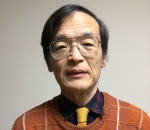以下は大雑把な英語版です。
知ってる内容を英語ルートで理解。洋画で字幕を読んで英語を聞くように。
日本語の内容はこちらから
↓ ↓ ↓
https://worldlife.jp/archives/11484
Recently, two news stories caught my attention. One involved a high school baseball player, who was admonished by an umpire for making a pepper mill gesture on first base after hitting a base. What struck me was that the player accepted the admonishment without protest or argument, and never repeated the gesture throughout the game.
The other news story concerned the police considering a law that would make it mandatory for all Japanese people to wear helmets while riding bicycles. It is expected that once the law is implemented, Japanese people will comply with little protest or argument.
These incidents made me reflect on the tendency of Japanese people to be obedient and docile. It reminded me of the ideas put forth by Michel Foucault, who argued that since the late 17th century, political, religious, and social powers have sought to discipline ordinary individuals by influencing their conscience and awareness, rather than using brute force.
This approach aims to make citizens obedient and compliant, willingly following the rules and laws imposed upon them.
Foucault illustrated this concept with the panopticon, a prison designed with a central watchtower from which all prisoners could be observed at all times, regardless of their location within the prison. The constant surveillance was intended to cultivate a sense of being watched, thereby encouraging prisoners to behave.
While we often take it for granted that we must obey the law, it is worth considering whether this belief has been ingrained in us by those in power. If what we have considered as our own beliefs and values were actually implanted by external forces, can we remain calm?
However, it is important to note that this is a more complex issue than a simple “us vs. them” scenario. Many of these beliefs and values have become internalized within us, requiring us to challenge a part of ourselves.
It can feel like a battle within ourselves, akin to “me against me” or “Jiro against Imamura,” to borrow the terminology of a Foucault’s student.
My point is that we need to be conscious of the intricate power dynamics that exist in the modern age, particularly in terms of governance and being governed. Knowledge, as Francis Bacon once said, is power. Here, “knowledge” does not merely refer to information or data,but rather to awareness and insights.
To gain a new perspective and broaden our understanding, I believe it is essential to read extensively, especially in foreign languages.
It won’t be easy, though. Who ever said that developing independent opinions and speaking out was easy? It requires significant effort if we are to live as true human beings, not as slaves or sheep.
私立学校に英語教師として勤務中、40代半ばに差し掛かったころ、荒れたクラスを立て直す策として、生徒に公言して英検1級に挑戦することを思い立つ。同様の挑戦を繰り返し、退職までに英検一級(検定連合会長賞)、TOEIC満点、国連英検SA級、フランス語一級、スペイン語一級(文科大臣賞)、ドイツ語一級、放送大学大学院修士号などの成果を得る。
アメリカで生徒への対応法を学ぶ為に研修(地銀の助成金)。最新の心理学に触れた。4都県での全発表、勤務校での教員への研修を英語で行う。現在も特別選抜クラスの授業を全て英語で行っている。「どうやって単語を覚えればいいですか?」という良くある質問に答える為、印欧祖語からの派生に基づく「生徒には見せたくない語源英単語集」を執筆中。完成間近。常日頃洋書の読破で様々な思考にふれているが、そうして得た発想の一つを生かして書いた論文がコロナ対策論文として最近入賞。賞品の牛肉に舌鼓をうっている。元英検面接委員


